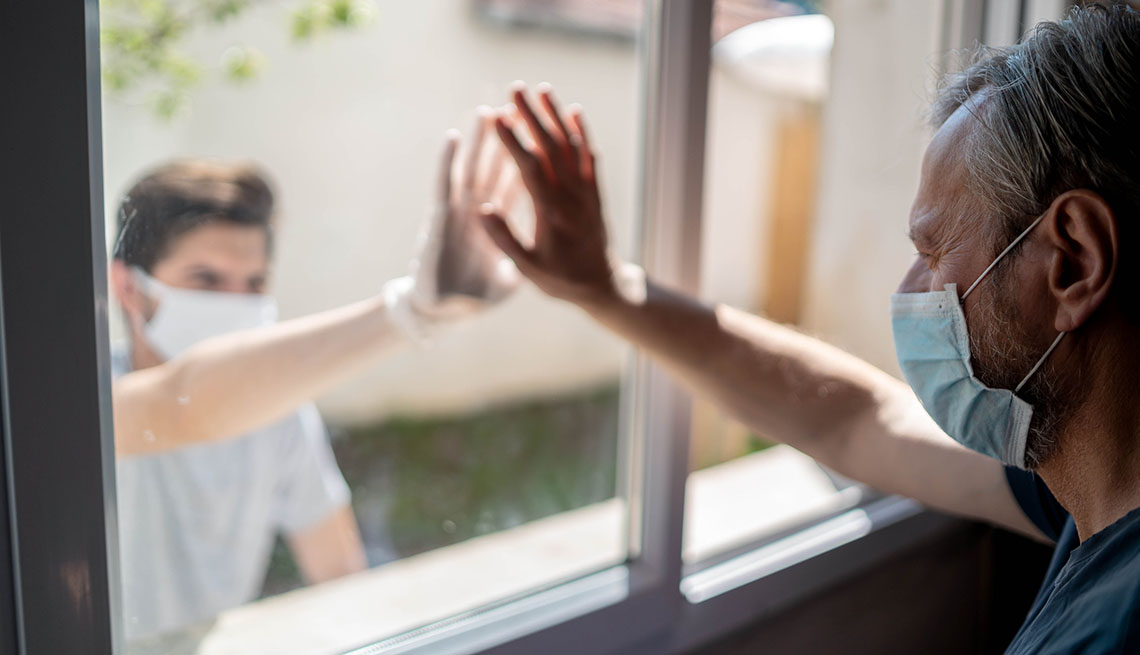Staying Fit
Imagine the loved and respected 80-year-old matriarch of a tight-knit clan living in the same neighborhood as her extended family. After serving hundreds of Sunday dinners and doing a thousand after-school pickups while her three teenage grandsons were growing up, Antonia knows they are accustomed to seeing her regularly, going in and out of her small house and helping themselves to snacks in her well-stocked pantry. But the COVID-19 pandemic has made her afraid. She's heard that her happy and carefree grandsons have been playing basketball with their friends without masks on, as if they are immune to the virus. How can she tell them she is worried that they might already be infected without knowing it and could inadvertently make her sick if she allows them to visit her?
It can be hard for close family members to set limits with one another under the best of conditions. In this excruciating period of national health crisis, when relatives of different ages have varying degrees of tolerance for infection risk, it can be harder than ever. Some may prioritize togetherness over caution. Some may interpret prudent safety measures as rejection. No family-loving grandparent wants the guilt of telling her sweet grandchildren to stay away until they've quarantined for a while.


AARP Membership— $12 for your first year when you sign up for Automatic Renewal
Get instant access to members-only products and hundreds of discounts, a free second membership, and a subscription to AARP the Magazine.
Antonia doesn't want to be apart from her grandsons for month after month. She told her best friend on the phone, “I so miss their big hugs!” But she reads the news reports that the pandemic is mostly affecting Americans over 65. She hopes that her grandsons are reading them, too, and realize that she feels vulnerable. Still, she knows it's time to have a frank talk with them to make sure they understand — and will comply.
How can grandparents like Antonia have a conversation with their grandchildren about setting limits without hurting their feelings? Here are some ideas.
Your sense of safety first
"Safety” seems like a cut-and-dried term, but it can be subjective. I may feel safe driving 10 miles over the speed limit, but you may not. You may feel safe carrying a loaded pistol, but I may not. Even though few of us doubt the lethal nature of the coronavirus for some, there has been debate and confusion about what behaviors are safe and unsafe for particular people, in what states and at what time. Peers, adult children and grandchildren may try to convince you that you are less vulnerable than you imagine. But that's beside the point. You need to communicate to them what you require to feel safe and ask them to defer to your level of concern.

































































